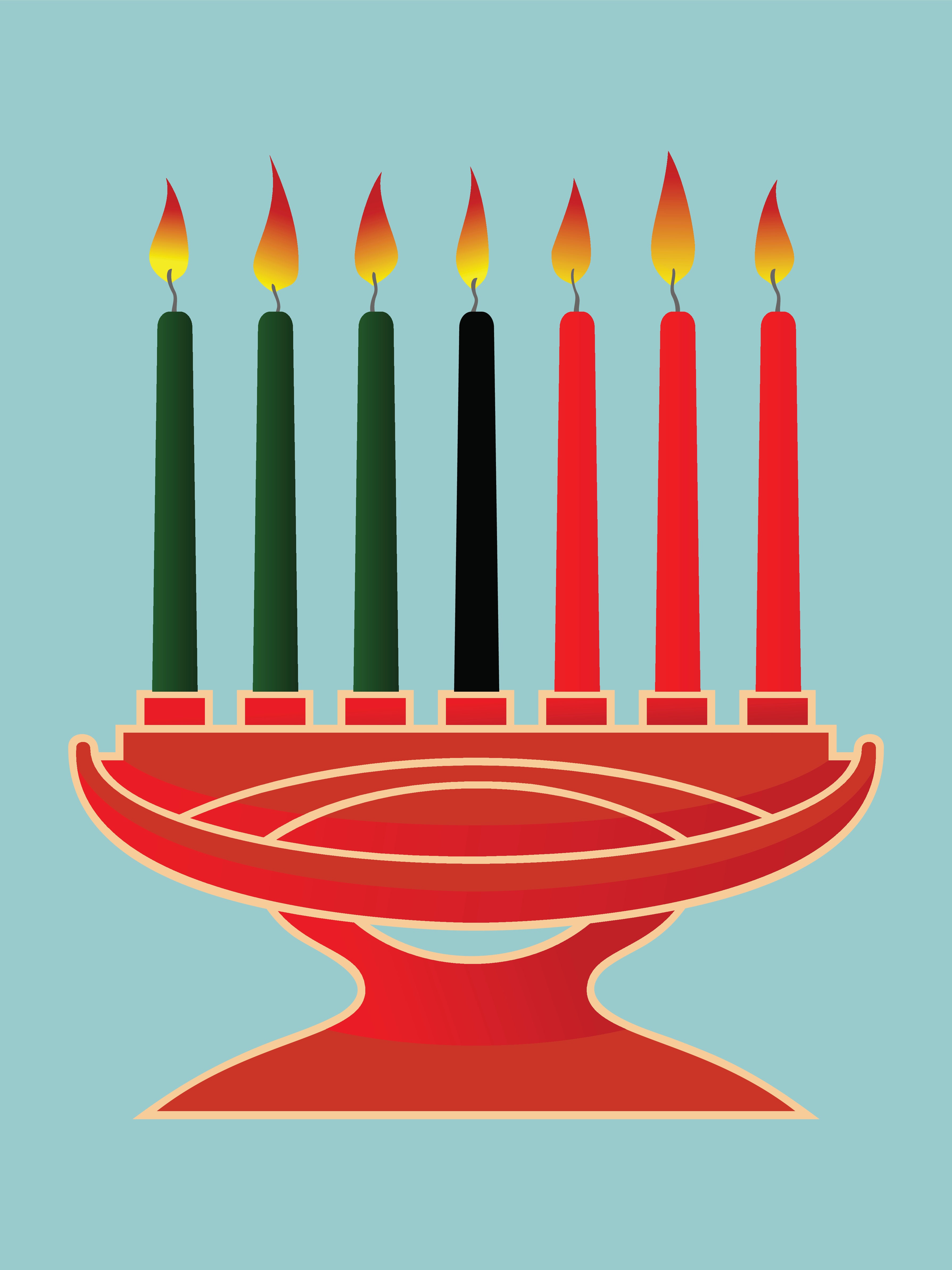
The first Christmas after my son was born, my mom and mother in law harassed my husband and I through text messages they knew might not get responses: what were we getting the kids for Christmas, if we were putting up a Christmas tree, if we were sending a Christmas card, and if we were going to church.
As a new millennial family, we knew we wanted to make our own traditions. We also had financial and parenting goals. We wanted to break chains of Eurocentrism and participate in capitalism in a responsible way that made sense for our pockets and our hearts.
My husband and I both minored in African American Studies in college and are often teased by our family members for being too woke. We currently live in Brooklyn and would see social media ads for Kwanzaa related events. In undergrad, we learned that Kwanzaa was first celebrated in 1966 by Africana Studies Professor, Dr. Maulana Karenga. Activist Dr. Karenga initiated Kwanzaa as an alternative for Black Americans to celebrate themselves and their history in America and the African Diaspora during the end of the year holiday season. It just made sense for us to celebrate Kwanzaa.
We began to research different events in our community. We went to events that celebrated Ujima (collective work and responsibility) and did community service. We went to events that celebrated Ujamaa (Cooperative Economics) where we could buy from Black owned businesses. We went to events that celebrated Kuumba (Creativity) where the kids could make hand made gifts.
We have friends and family that ask us, “What about the kids?” “What about the magic of Christmas?” Nothing has made the kids more excited than waking up everyday knowing they have something to look forward to.
They help to light the kinara each day. They look forward to each night when we each get to share our stories that are related to the seven principles and drink from the unity cup. My three year old son says, “Kwanzaa is a party every day!” They also know on the last day they will receive presents. It does take extra planning, but it makes our week together home from school and work have a daily purpose.
Now, we have more friends and other millennial parents to share in the celebration. It’s a space where we can all support each other’s endeavors and build community. We’ve also learned there is no “right” way to celebrate Kwanzaa. Each family and community has their own traditions to honor their ancestors and to celebrate the future.
Celebrating Kwanzaa is celebrating Black Love.





